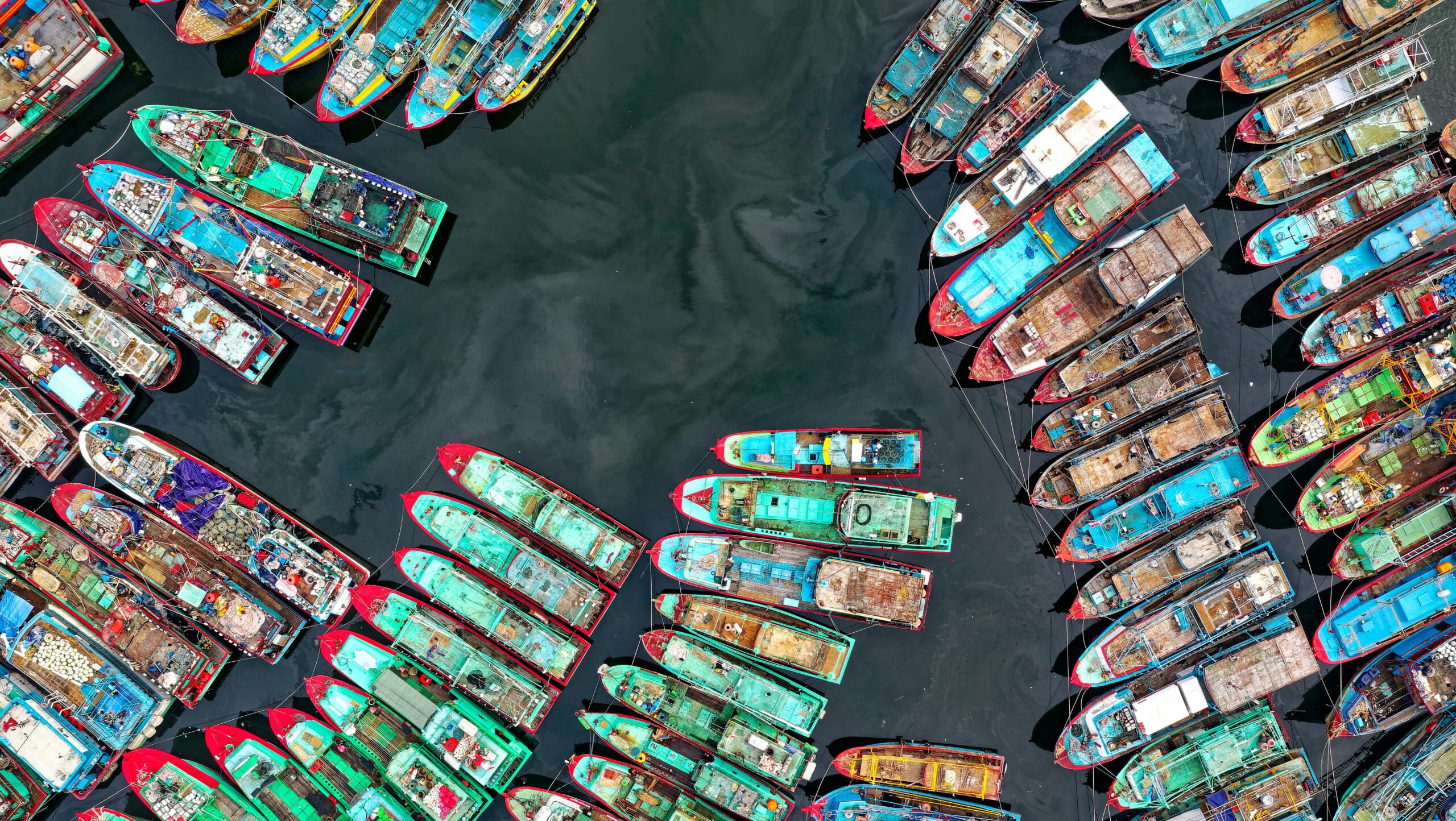Why multi-sector collaboration is “critical” in the fight against illegal fishing

The complexities of fisheries crime require different sectors to work more closely together, according to Braddock Spear, Global Policy Director at the Sustainable Fisheries Partnership (SFP).
Speaking to the Nature Crime Alliance Secretariat, Spear highlighted the multi-dimensional challenges posed by these crimes – and why they need a multi-sector response.
“It’s a really complicated matter and there are many different factors,” Spear said, citing political sensitivities – including issues around state sovereignty and national security – and the murky layers of corruption that shroud the organised crime networks plundering the ocean.
“We need various actors and sectors to come together and to work together.”
This was a factor in SFP’s decision to join the Nature Crime Alliance when it launched in 2023. Only by working with a wide group of stakeholders involved in different aspects of this complicated issue, building bridges across sectors, and increasing coordination and information-sharing, will success be found.
Watch: Braddock Spear on SFP’s engagement with the Nature Crime Alliance
“The seafood industry has a really key role to play in identifying illegal fishing risks, and in taking steps to close down the markets for those illegal products,” Spear said. “Producing countries, meanwhile, need good fisheries management, they need good monitoring and enforcement systems, while importing countries need the regulations and the checks required to ensure illegal products are identified.
“International institutions, such as UN agencies, also have an important role to play in intelligence sharing or in running campaigns that raise awareness of the issue.”
Bringing together these actors – industry players, governments, international and civil society organisations, innovators – to find solutions to the different parts of the puzzle is “critical” in the fight against illegal fishing, Spear added, highlighting the value of multi-sector initiatives such as the Nature Crime Alliance, which drives engagement across different sectors.
Case study: Multi-sector collaboration leads to ‘historic decision’ on human rights
In February 2024, the South Pacific Regional Fisheries Management Organization (SPRFMO) endorsed plans to address human rights abuses in distant water fishing fleets, alongside measures to improve monitoring, control, and surveillance in the jumbo flying squid industry. The outcome followed a multi-sector push from 30 major seafood companies, industry associations, and governments. While not all measures proposed were adopted, the agreed measures marked a major step forward in tackling illegal fishing and associated human rights abuses at sea.
An impactful platform
“To date, the Alliance has supported SFP in a couple of different ways,” he said.
“The Alliance, under WRI’s leadership and coordination, gives us a really impactful platform of organisations that are already aligned for fighting environmental crimes. This includes organisations that we haven’t previously worked with.”
SFP is a member of an Alliance working group that focuses on tools and technology in combating illegal fishing. This forum provided an opportunity for SFP to share its new guidelines for designing electronic monitoring programmes, receiving constructive feedback from other organisations in the working group that has strengthened the product.
SFP was also given a platform at an Alliance webinar to discuss its new fishery IDs tool, developed with FAO. “We got to hear some interesting reactions and feedback from the group,” Spear said. “It’s just really valuable for us.”
Yet these tools and systems that SFP is building will not work in isolation.
“The truth is, this won’t work – we cannot do it – in a vacuum,” said Spear. “We need collaborators, we need groups from other sectors, we need alignment, particularly with governments and international organisations to bring these systems and the industry’s influence to a global scale.”
This is where the Nature Crime Alliance will continue to add value, he contends.
“More and more, looking ahead, SFP will be tapping into the network or the Alliance to look for those collaboration opportunities.”
Fisheries crime is a major focus of the Nature Crime Alliance, whose members include SFP, FishWise, Fisheries Transparency Initiative, and Outlaw Ocean.

